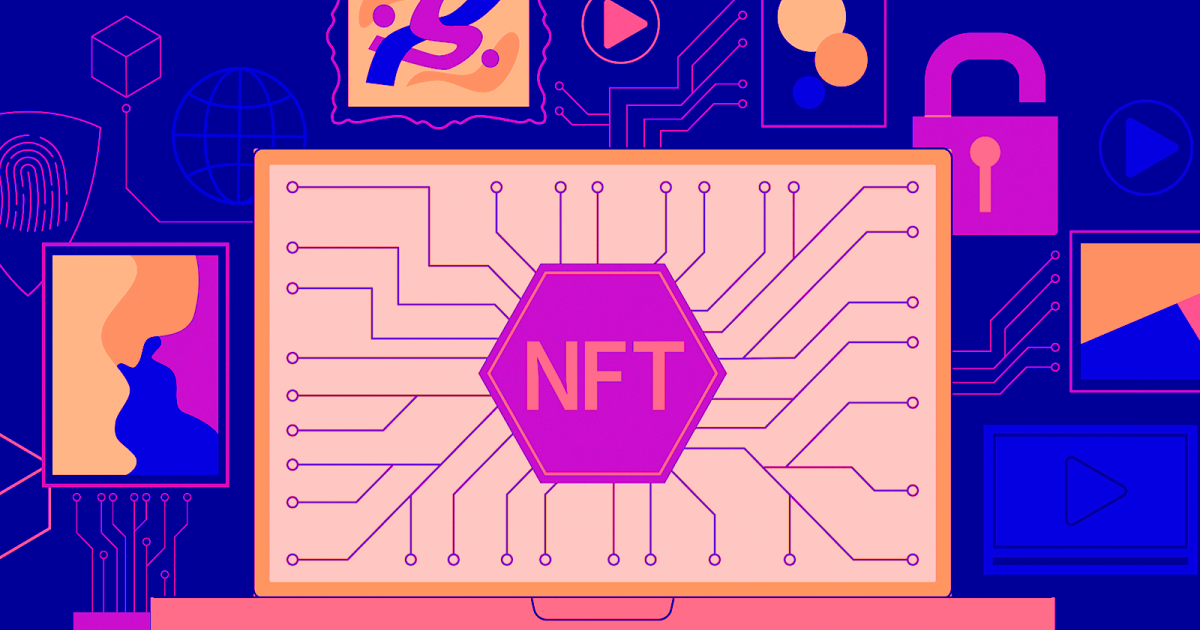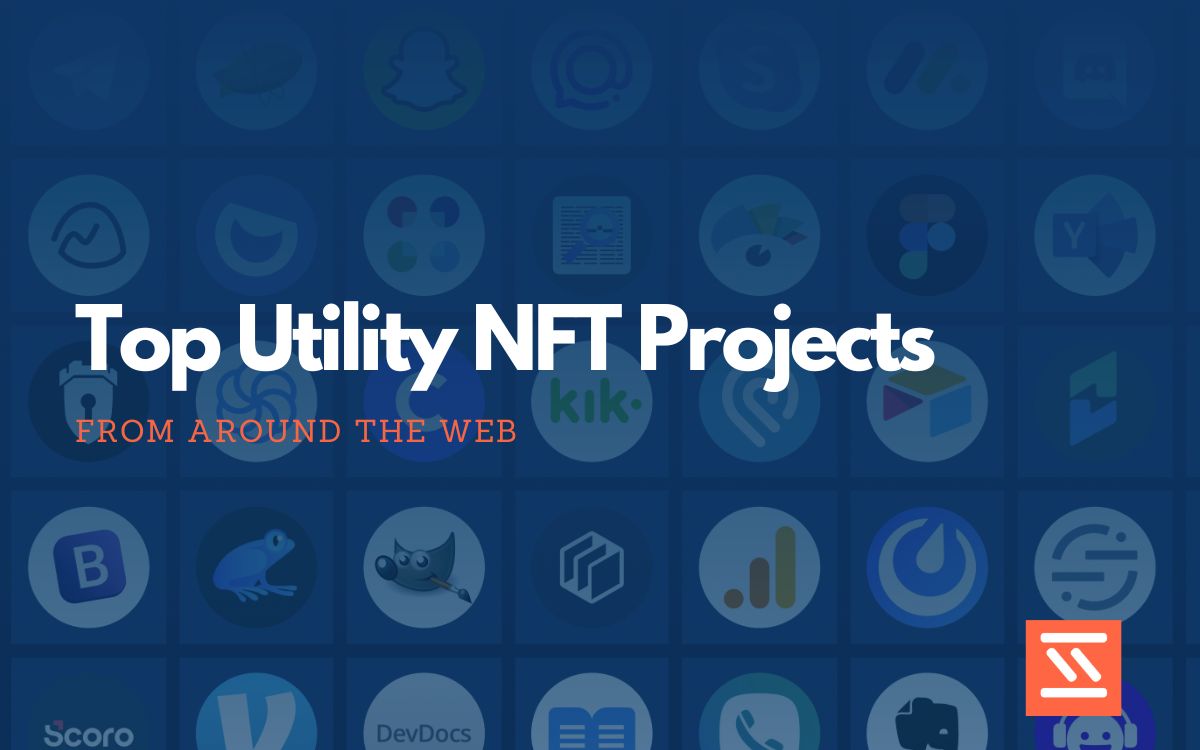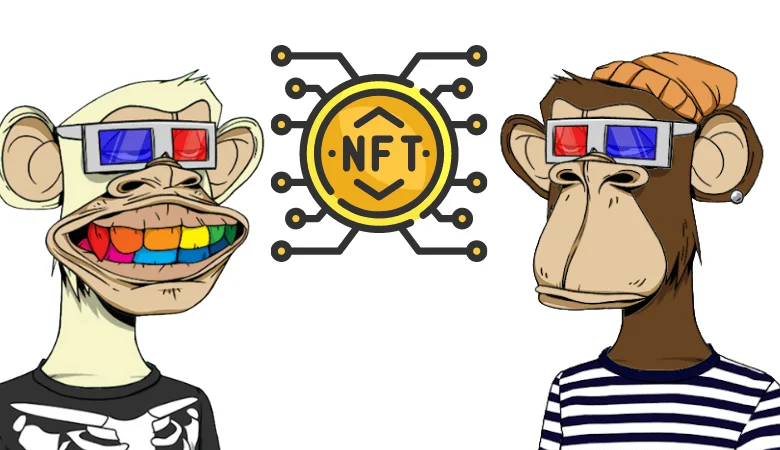“NFT Utility: Beyond the Hype – Real-World Applications and the Future of Non-Fungible Tokens
Artikel Terkait NFT Utility: Beyond the Hype – Real-World Applications and the Future of Non-Fungible Tokens
- NFT Drops: A Comprehensive Guide
- NFT Airdrops: A Comprehensive Guide To Free Digital Assets
- 1/1 NFTs: The Pinnacle Of Digital Art Ownership
- Okay, Here’s A Comprehensive Article About NFTs (Non-Fungible Tokens), Aiming For Approximately 1600 Words.
- NFT Marketplaces: A Comprehensive Guide To Buying, Selling, And Trading Digital Assets
Table of Content
Video tentang NFT Utility: Beyond the Hype – Real-World Applications and the Future of Non-Fungible Tokens
NFT Utility: Beyond the Hype – Real-World Applications and the Future of Non-Fungible Tokens

Non-fungible tokens (NFTs) have captured the world’s attention, initially sparking interest as digital collectibles and speculative assets. While the early days of NFTs were dominated by profile pictures (PFPs) and digital art, the landscape is rapidly evolving. The true potential of NFTs lies not just in their scarcity or aesthetic appeal, but in their utility – the real-world applications and benefits they offer to holders. This article explores the concept of NFT utility, its diverse forms, the impact it’s having across various industries, and the future of NFTs as more than just digital collectibles.
What is NFT Utility?
At its core, NFT utility refers to the tangible or intangible benefits that an NFT provides beyond simply owning a unique digital asset. It’s the "what else can I do with this NFT?" factor. These benefits can range from exclusive access to content or events to membership perks, in-game advantages, or even ownership rights in physical assets.
Why is NFT Utility Important?
- Value Proposition: Utility adds intrinsic value to an NFT. Instead of relying solely on speculation or perceived rarity, utility provides a concrete reason for people to own and hold an NFT.
- Sustainability: Projects with strong utility are more likely to sustain long-term interest and value. Utility creates a community of engaged holders who are invested in the project’s success.
- Adoption: Utility bridges the gap between the crypto world and the real world. By offering practical applications, NFTs become more accessible and appealing to a wider audience.
- Innovation: Utility drives innovation in the NFT space. Creators are constantly exploring new ways to leverage NFTs to provide unique experiences and benefits to their communities.

Types of NFT Utility:
NFT utility comes in many forms, and the possibilities are constantly expanding. Here are some of the most common and innovative examples:
-
Access and Membership:

- Exclusive Content: NFTs can grant access to premium content, such as articles, videos, music, or online courses.
- Gated Communities: NFT holders can gain entry to private online communities, Discord servers, or forums where they can connect with other members, share ideas, and collaborate.
- Events and Experiences: NFTs can serve as tickets to exclusive events, concerts, conferences, or meetups.
- Early Access: NFT holders may receive early access to new products, features, or services.

-
In-Game Utility:
- Cosmetics and Customization: NFTs can be used to customize characters, weapons, or other in-game assets.
- Gameplay Advantages: NFTs can provide gameplay advantages, such as increased stats, special abilities, or access to exclusive areas.
- Ownership of In-Game Assets: NFTs can represent ownership of virtual land, items, or characters within a game, allowing players to trade or sell their assets.
- Play-to-Earn (P2E) Mechanics: NFTs are integral to P2E games, where players can earn cryptocurrency or other rewards by playing the game and owning valuable NFT assets.
-
Real-World Assets and Experiences:
- Real Estate: NFTs can represent ownership of real estate properties, simplifying the process of buying, selling, and managing property.
- Collectibles and Art: NFTs can be linked to physical collectibles or artwork, providing proof of ownership and authenticity.
- Luxury Goods: NFTs can be used to authenticate luxury goods, such as watches, handbags, or jewelry, and track their ownership history.
- Experiences: NFTs can unlock real-world experiences, such as travel packages, VIP access to events, or personalized services.
-
Financial Utility:
- Staking and Yield Farming: NFTs can be staked to earn rewards in the form of cryptocurrency or other tokens.
- Fractional Ownership: NFTs can be fractionalized, allowing multiple people to own a share of a valuable asset, such as a piece of art or real estate.
- Collateralized Loans: NFTs can be used as collateral for loans, providing a way for NFT holders to access capital without selling their assets.
- Governance Rights: NFTs can grant holders voting rights in decentralized autonomous organizations (DAOs) or other governance structures.
-
Identity and Reputation:
- Digital Identity: NFTs can be used to create a secure and verifiable digital identity, allowing users to control their personal information and reputation online.
- Credentials and Certifications: NFTs can represent credentials, certifications, or licenses, providing a tamper-proof way to verify qualifications and skills.
- Reputation Systems: NFTs can be used to build reputation systems, where users earn NFTs for positive contributions or achievements.
Examples of NFT Projects with Strong Utility:
- Bored Ape Yacht Club (BAYC): BAYC NFTs grant holders access to an exclusive online community, events, and merchandise. They also receive commercial rights to their Ape, allowing them to create and sell derivative products.
- Decentraland: Decentraland is a virtual world where users can buy, sell, and build on virtual land represented by NFTs.
- Axie Infinity: Axie Infinity is a P2E game where players collect, breed, and battle creatures called Axies, which are represented by NFTs.
- STEPN: STEPN is a move-to-earn fitness app where users earn cryptocurrency by walking, jogging, or running while wearing NFT sneakers.
- LinksDAO: LinksDAO is a decentralized autonomous organization (DAO) that aims to purchase and operate a golf course, with membership granted through NFT ownership.
Industries Being Disrupted by NFT Utility:
NFT utility is poised to disrupt a wide range of industries, including:
- Gaming: NFTs are revolutionizing the gaming industry by enabling true ownership of in-game assets and creating new P2E models.
- Art and Collectibles: NFTs are transforming the art world by providing a way to authenticate and trade digital art, as well as connect artists and collectors directly.
- Music: NFTs are empowering musicians to connect with their fans, sell their music directly, and create new revenue streams.
- Real Estate: NFTs are simplifying the process of buying, selling, and managing real estate, as well as enabling fractional ownership.
- Supply Chain: NFTs can be used to track and verify the authenticity of products throughout the supply chain, reducing fraud and improving transparency.
- Healthcare: NFTs can be used to securely store and share medical records, as well as track the provenance of pharmaceuticals.
- Education: NFTs can be used to represent credentials, certifications, and academic achievements, providing a tamper-proof way to verify qualifications.
Challenges and Considerations:
While NFT utility holds immense potential, there are also challenges and considerations to keep in mind:
- Scalability: Many blockchain networks are still struggling to handle the high transaction volumes required for widespread NFT adoption.
- Security: NFTs are vulnerable to hacking and theft, so it’s important to take precautions to protect your assets.
- Regulation: The regulatory landscape for NFTs is still evolving, and there is uncertainty about how NFTs will be treated under existing laws.
- Environmental Impact: Some blockchain networks consume a significant amount of energy, raising concerns about the environmental impact of NFTs.
- Valuation: Determining the fair value of NFTs with utility can be challenging, as it depends on a variety of factors, such as the perceived value of the utility, the size of the community, and the overall market sentiment.
The Future of NFT Utility:
The future of NFT utility is bright. As the technology matures and more creators and businesses explore the possibilities, we can expect to see even more innovative and practical applications of NFTs. Some potential future developments include:
- More Sophisticated Utility Models: We can expect to see more complex and nuanced utility models that offer a wider range of benefits to NFT holders.
- Integration with the Metaverse: NFTs will play a key role in the metaverse, serving as avatars, virtual land, and other digital assets.
- Increased Interoperability: NFTs will become more interoperable, allowing them to be used across different platforms and applications.
- Mainstream Adoption: As NFTs become more user-friendly and offer more tangible benefits, we can expect to see wider adoption by mainstream consumers.
Conclusion:
NFT utility is the key to unlocking the true potential of non-fungible tokens. By providing real-world applications and benefits, utility adds value, drives adoption, and fosters innovation. As the NFT space continues to evolve, we can expect to see even more creative and practical uses of NFTs that transform industries and empower individuals. The future of NFTs is not just about digital collectibles; it’s about creating a new digital economy where ownership, access, and experiences are redefined.
